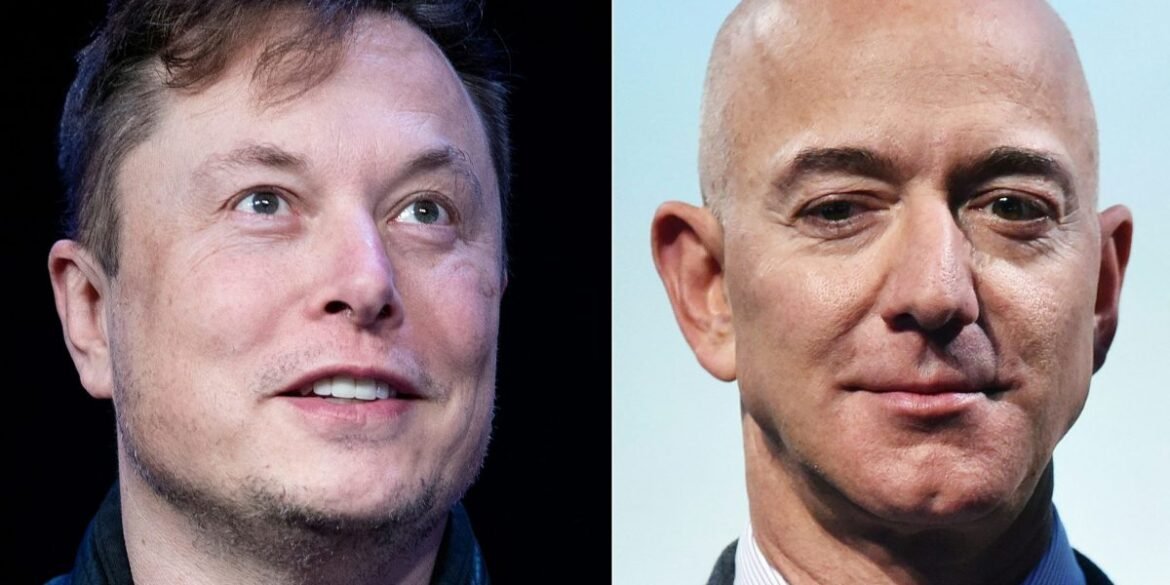
The five richest people in the world doubled their combined net worth from $405 billion to $869 billion in just over three years, a new Oxfam International report shows. Elon Musk, Jeff Bezos, Larry Ellison, Warren Buffett, and Bernard Arnault (including his family) all topped the list of the world’s richest people whose net worth skyrocketed from March 2020 to November 2023.
During the same time period, the collective wealth of the poorest 60% of the world’s population—approximately 4.8 billion people—fell 0.2%, which, while a small percentage, illustrates the divergent trends for the rich and the poor. Things get drastically better for those with money and marginally worse for this without it.
If the fortunes of the wealthiest individuals continue to grow at their current pace, the world could see its first trillionaire in the next 10 years, the report projects. But Oxfam predicts it would take 229 years for global poverty to be eliminated, defined as reducing the number of people earning $6.85 a day to less than 1% globally.
Oxfam’s report comes as the world’s wealthiest people, highest powered executives, and ranking politicians meet in Davos, Switzerland, at the World Economic Forum.
“These extremes cannot be accepted as the new norm, the world can’t afford another decade of division,” Oxfam interim CEO Aleema Shivji said in a statement accompanying the report.
The timing of the report draws a stark contrast between the trajectories of the world’s wealthiest and the world’s poorest—highlighting the continued problem of wealth inequality, which gained new urgency following the Occupy Wall Street movement in 2011. The movement popularized the term “the 1%,” making it a catchall term for the world’s richest people.
The race to become the first trillionaire
To be in the top 1% of U.S. earners, a household would need to earn about $652,000 a year. Certainly a large amount of money, and one that can virtually guarantee a comfortable life, but hardly the level of wealth enjoyed by the billionaires Oxfam cites. Musk, Bezos, and company each surpassed that threshold long ago. All five also founded companies which they either run as CEO or control as the largest shareholders.
Much of the wealth generated by large companies comes off the backs of workers who aren’t always properly compensated for their roles, Oxfam argues. The current state of the business world “generated unprecedented profits for major companies, fantastic pay for an elite class of executives and tremendous wealth for shareholders,” Oxfam’s report says.
An S&P 500 CEO earns 272 times more than the average worker, according to a separate report from labor union AFL-CIO.
The U.S. appears to be making some headway in improving workers’ wages. In the third quarter of 2023, weekly wages rose 4.5% compared to the same time the year before, while inflation only rose 3.5%, according to the Bureau of Labor Statistics’ latest available data.
The number of millionaires fell in 2022, according to a report from Swiss investment bank UBS, but that was more an aberration due to inflation and unfavorable foreign exchange rates around the globe, rather than the evening out of financial assets. The report also predicted that by 2027, the number of millionaires would increase 44%, while the number of ultra-high-net-worth individuals, defined as households with over $50 million in assets, was projected to increase 53%.
For many, though, the hope of improving their financial position appears to be slipping further away, with 4.8 billion people poorer than they were in 2019 before the pandemic, according to Oxfam.
The global strife of the COVID-19 pandemic became another flashpoint for debate about income inequality. During that time period, many were stuck at home or faced unemployment as a result of the ensuing economic downturn, but others were enriching themselves at previously unprecedented levels. As the economy faltered, with businesses shuttering and unemployment soaring, the stock market boomed. As the major shareholders of the companies they founded, those like Musk and Bezos got richer despite a lagging economy.
Between March 2020 and April 2021 the world minted a new billionaire every 17 hours, as 493 people joined the ranks of those with nine-figure net worths. In October 2021, about a year and a half into the pandemic, the 400 richest people in the U.S. grew their net worth by 40%, accumulating an additional $4.5 trillion. At the same time unemployment levels were recovering from the surge of layoffs that accompanied the outset of the pandemic, but still saw 7.4 million Americans out of work, according to the Bureau of Labor Statistics.
Despite the pandemic being mostly in the rearview mirror, Shivji, Oxfam’s interim CEO called on governments to not overlook the economic realities it brought to the fore.
“A fairer economy is possible, one that works for us all,” she said.

